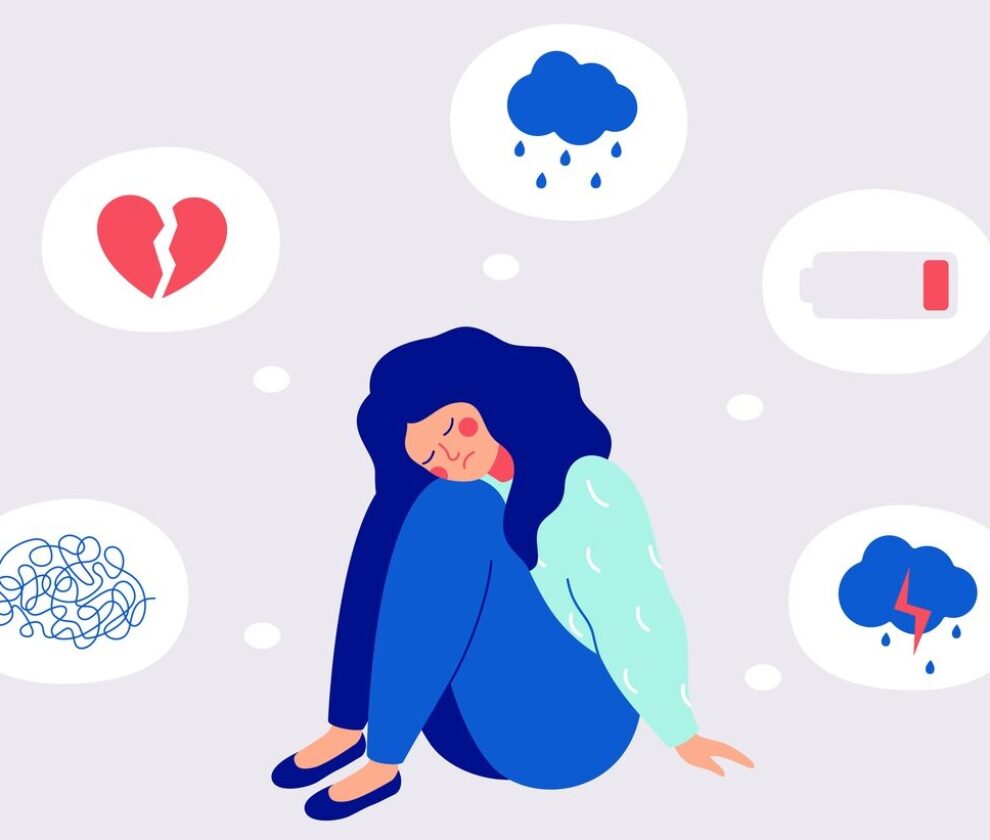There’s no question that stress takes a toll on our mental health, but what about our brains? Recent research has shown that stress can have a number of negative effects on the brain, including impairing memory, increasing the likelihood of developing mental illnesses, and altering brain structure. In this blog post, we’ll take a closer look at 5 ways stress can affect your brain. With that being said, let’s get started!
Way #1: Impairment of Memory
One of the most well-known effects of stress is its ability to impair memory. Studies have shown that chronic stress and anxiety can lead to hippocampal-dependent memory deficits, which means that it can make it difficult for us to remember things. In particular, stress has been shown to negatively impact what is known as spatial memory, or the ability to recall information about the location of objects in the environment as well as spatial orientation (Source). The good news is that this effect is reversible, so if you’re able to reduce your stress levels, your memory should improve. Whether you are dealing with stress at work or taking care of your family, it’s important to find ways to manage it in order to protect your memory. Tips for managing your stress in these settings include:
-In Work Settings: Try to delegate tasks, take breaks, ask for help when needed, learn tos ay no to unrealistic expectations and create a realistic to-do list. This will help you to avoid feeling overwhelmed and stressed.
-In Family Settings: Make sure you are also a priority. This may include once again getting help when needed from family or friends, delegating tasks, not making everything you need to do urgent, or taking breaks in your day.
Way #2: Stress Kills Brain Cells
While it’s true that all of our cells die eventually, chronic stress can speed up the process. Studies have shown that chronic stress can lead to the death of neurons in the hippocampus, which is the part of the brain responsible for memory and learning. It is also one of the two areas of the brain where neurogenesis, or the formation of new brain cells, occurs throughout life. As a result, if left untreated, stress can lead to a decay in the amount of brain cells you have while also making it difficult to generate new ones.
Way #3: Increases Likelihood of Mental Illnesses
While the exact mechanism is still not fully understood, there’s a growing body of evidence that suggests that stress can increase the likelihood of developing mental illnesses such as anxiety and depression. This is likely due to the fact that chronic stress alters the structure of the brain, making it more vulnerable to mental illness. Additionally, stress can impact the way our brains regulate mood and emotions, which can further contribute to mental health problems in the long run.
Way #4: Stress Alters Brain Structure
As we mentioned before, chronic stress can alter the structure of the brain. One of the ways it does this is by shrinking the hippocampus, which as we noted earlier, is responsible for memory and learning. In addition, chronic stress has also been linked to shrinking the prefrontal cortex, which is responsible for executive function and decision making. This shrinkage can cause significant mental health damage and is yet another reason as to why it’s so important to manage your stress levels.
Way #5: Stress Shrinks Your Brain Overtime
Lastly, and one of the most alarming effects of chronic stress is that it can actually shrink your brain. Studies have shown that chronic stress can lead to a decrease in brain volume, particularly in the hippocampus. This effect is thought to be due to the fact that chronic stress leads to the death of neurons in the hippocampus. Additionally, with the shrinkage of the hippocampus this may make individuals going through this much more challenged when dealing with future incidents of stress, particularly if the next demanding event requires effortful control, emotion regulation, or integrated social processing to overcome it.
The Verdict
In Conclusion, while there’s no question that stress takes a toll on our mental health, it’s important to remember that it can also have a number of negative effects on our brains. In this blog post, we’ve looked at 5 ways stress can affect your brain. If you’re struggling with chronic stress, it’s important to seek help from a mental health professional.
If you or someone you know is struggling with mental health, please reach out for help. Contact us today to get a free consultation or checkout our Google My Business Profile for more information. We would love to help you out.
Thanks For Reading!
We hope this article was helpful. For more info, feel free to check out some of our other blog posts down below!
- How to Study When Depressed
- 6 Things to Value That Can Improve Mental Health
- Dealing with Emotions After Divorce
- 5 Ways Stress Affects the Brain
- 10 Ways of Bringing Mindfulness in Your Day
- Am I Introverted or Depressed
- 9 Ways on How to Cope with Mom Guilt
- 9 Tips to Cope With Losing a Loved One
- 10 Tips to Recover From Being Emotionally Drained
- How to Prepare for Your First Couples Counselling Session
- 10 Tips to Help You Deal With Stress from Work
- Does an Adult Need a Psychoeducational Assessment
- What Do Psychologists do to Test Their Theories
- 6 Tips on How to Find a Good Psychotherapist
Additional Resources
To learn more about our services that we offer at Cedarway Therapy check out the resources down below!
- Psychologist Oakville
- Psychologist Hamilton
- Psychologist Toronto
- Psychologist Mississauga
- Couples Counselling Oakville
- EMDR Therapy Toronto
- ADHD Diagnosis Ontario
- Virtual Therapy Ontario
- Online Therapy Ontario
- Counselling for Addiction
- Trauma Counselling
- Grief Counselling Toronto
- Registered Clinical Counsellor
- Child Psychologist



